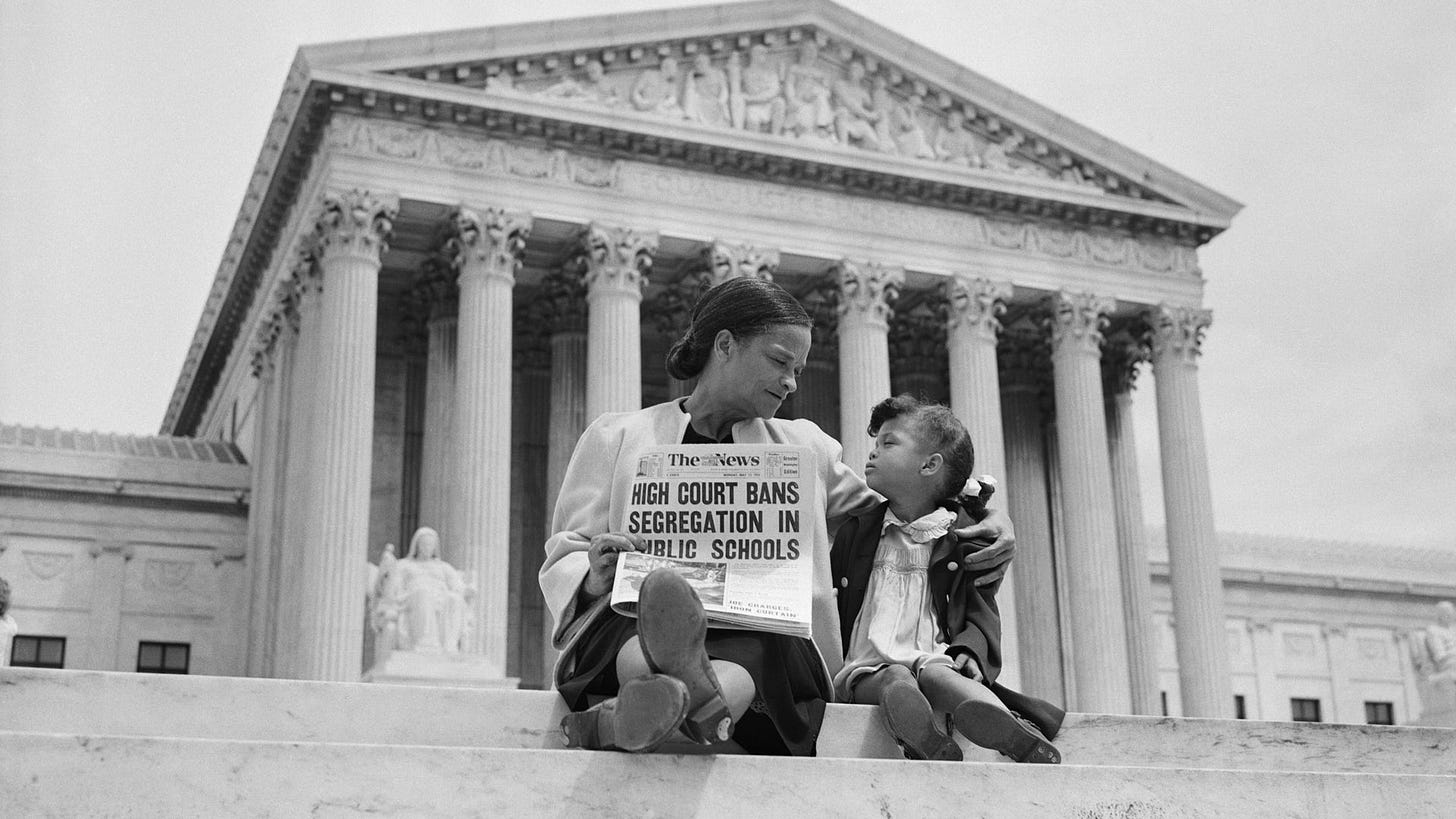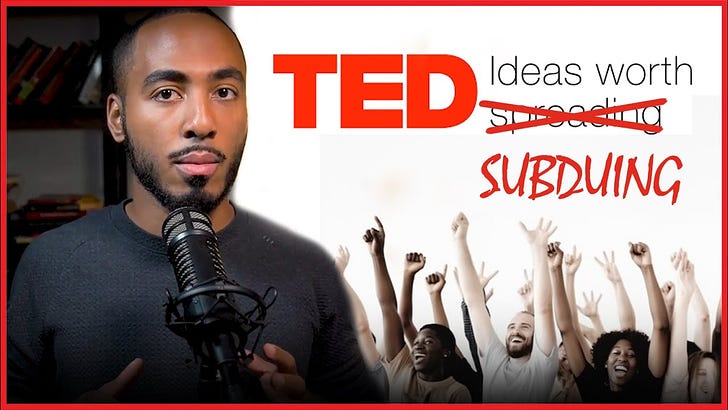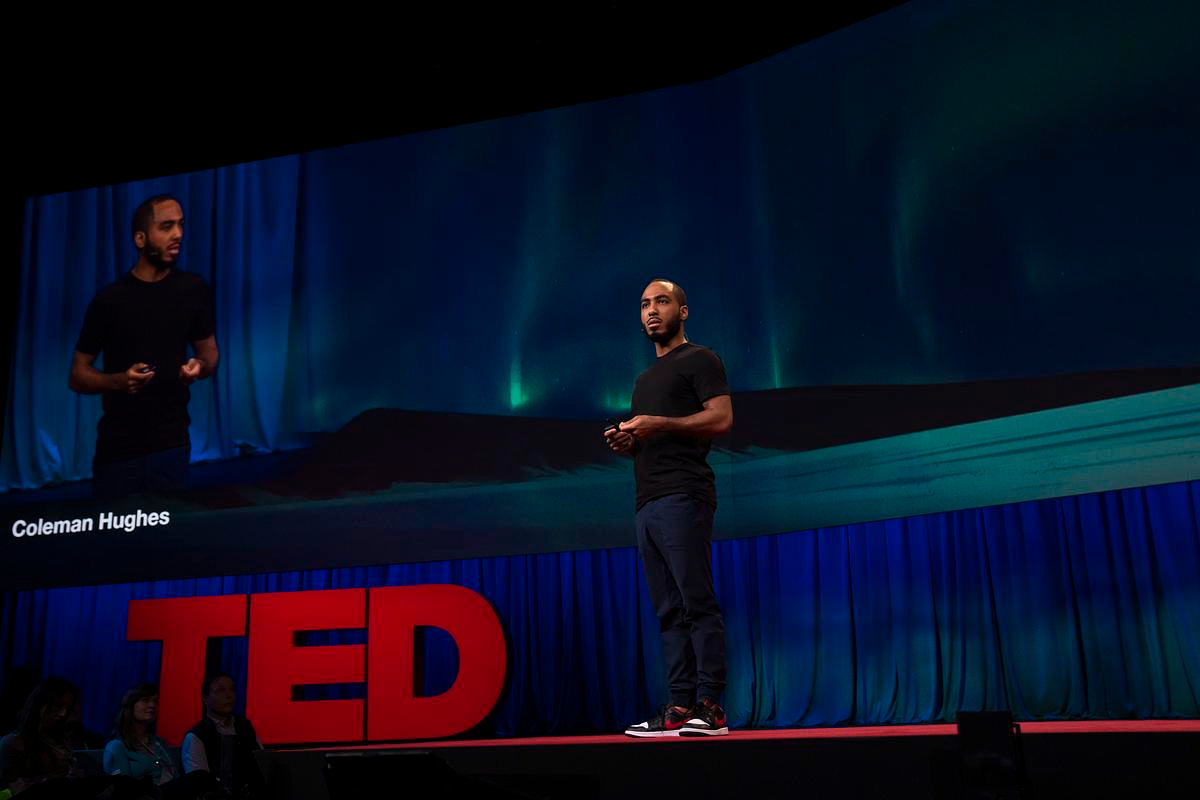"Can Colorblindness Cure Racism?"— Coleman Hughes' Ted Talk Triggers Controversy
The Storm Over Coleman Hughes' TED Talk: A Balanced Perspective
Introduction: The Ted Talk that Rocked the Boat
The TED talk by Coleman Hughes, aptly captioned "A case for colour blindness", delivered in Vancouver earlier this year, has stirred the cauldron of public opinion. Tackling the contentious subject of 'colour blindness versus anti-racism’ with a pre-vetted script, Hughes made a courageous argument advocating for a society that moves beyond racial considerations to build a more equitable future. According to the official TED note, Hughes suggests that "the key to reducing inequality and easing racial tensions is replacing race-based policies with class-based ones." The talk, not polarising on the face of it, has captivated a vast audience, accumulating over 150,000 views at the time of penning this article1. And, 111K on their YouTube version.
It is, however, the subsequent events that triggered the controversy.
Background Discussion: Adam Grant's Role
After Hughes gave his talk, social science researcher Adam Grant was consulted privately to ascertain if social science backed Hughes' argument. Grant provided a nuanced perspective, citing a paper that said, "Multiculturalism is more consistently associated with improved intergroup relations than any identity-blind ideology." Be that as it may, Grant was later accused of trying to suppress the talk and misinterpret the research, drawing him unfairly into the controversy.
The Gist of Hughes' Subsequent Article
Hughes later penned an article accusing TED of suppressing his talk due to internal pressures from 'woke' employees2. He also posted a YouTube video on his own channel. His fantastic allegation has fanned the flames even further. While Hughes makes a compelling argument, there is no clinching evidence to substantiate his claim of deliberate suppression, though in its unrebutted form, his claims do not appear to be prima facie baseless. This has added another layer of complexity to the issue, though as regards the veracity of his allegations, the jury is still out.
Coleman Hughes expresses concern that TED, an organization whose tagline is "ideas worth spreading," sought to suppress his own viewpoint. He was invited to speak at TED's annual conference, where he presented an argument in favor of color blindness — the idea that people should be treated without regard to race. Hughes found the audience largely receptive, but was informed later that a group within TED was "upset" by his talk. Instead of posting his talk normally, TED initially proposed it should be accompanied by a moderated debate, a move he felt would dilute his message.
Hughes feels that TED's reluctance to release his talk as they would any other is indicative of a broader problem — the capture of important institutions by an ideological minority that suppresses dissenting views. He also notes that his talk had received significantly fewer views compared to other talks released around the same time, questioning whether TED's commitment to "ideas worth spreading" extends to viewpoints that challenge the prevailing orthodoxy.
TED's Response: The Quest for Balance Amidst Controversy
Chris Anderson, the ultimate decision-maker at TED, has shared a lengthy, heartfelt response to the furore surrounding Coleman Hughes' talk on colour blindness. Adam Grant, a social scientist, also found himself embroiled in the debate after providing a paper supporting the benefits of multiculturalism over colour-blind ideologies. Anderson insists that Adam Grant's intentions were purely scientific and that he should not be accused of suppressing Hughes' talk.
Anderson acknowledges the public's perception that TED might be influenced by 'woke' ideologies but contends that this overlooks key context. According to him, TED aims to be nonpartisan and to offer ideas that span the political spectrum, which is why Hughes was invited to speak in the first place. Anderson admits that navigating the escalating political divisions has been challenging for media organizations, including TED.
He further explains that the internal team at TED was also divided over Hughes' talk, reflecting the broader public debate. Emphasising that they work for TED out of belief in its mission, Anderson states that when such disagreements arise, the right approach is to work through them for collective learning.
In conclusion, Anderson advocates for a shift in cultural conversations away from anger and judgement towards understanding and common ground. He encourages everyone to act in good faith and to be open to learning from diverse perspectives.
Lessons for India: Affirmative Action and the Issue of Reservations
The discussion around Coleman Hughes' talk offers relevant lessons for India, particularly in the domain of affirmative action based on caste, class, tribe, and religion, including the highly contentious issue of reservations for economically weaker sections (EWS). Much like the colour blindness versus multiculturalism debate, the dialogue around reservations in India is fraught with strong opinions and sensitivities. The key takeaway is the imperative need for nuanced, respectful discourse that considers multiple perspectives.
Balanced Analysis and the Middle Ground
In the ongoing debate between Coleman Hughes and TED, both parties present compelling arguments. Hughes is sounding an alarm about potential ideological conformity in platforms that traditionally encourage a multiplicity of viewpoints. His stance raises broader questions about the freedom of speech and thought in digital arenas that command a global audience. On the other hand, TED, known for its longstanding commitment to spreading a plethora of "ideas worth spreading," has been a venue for a wide array of perspectives, including those that may be considered unconventional or controversial. Their suggestion to include a moderated debate alongside Hughes' talk could be seen as a constructive attempt to broaden the conversation, rather than a tactic to dilute or suppress his message.
In light of the intricacies involved, an objective, data-centric analysis becomes paramount. Metrics like viewer engagement, comparison of viewer statistics with other similarly provocative talks, and overall public reaction could shed valuable light on the validity of Hughes' concerns or prove TED's impartiality.
Navigating this complex scenario requires a careful and nuanced approach that respects both the imperative for intellectual diversity and the sanctity of democratic principles that allow for the free exchange of ideas. In a time when polarization can distort discourse, taking extreme positions is counterproductive to the principles of democratic dialogue and intellectual diversity.
A Prescription for the Future
In the intricate realm of public discourse, platforms such as TED shoulder a substantial responsibility to maintain equilibrium, while also daring to venture into contentious territories. This balance becomes especially critical in today's increasingly polarised world, where every utterance is scrutinised for ideological allegiance. A commitment to fostering nuanced, well-rounded dialogue is imperative, and this dialogue must be informed not just by empirical data but also enriched by diverse lived experiences. Such an approach transcends mere talking points and touches the essence of subjects that are often emotionally charged and socially sensitive.
As agents of public thought, platforms like TED can't afford the luxury of narrow-mindedness. Instead, they must embrace a wide spectrum of ideas, from the scientifically rigorous to the emotionally compelling. This is not just about giving voice to popular or agreeable narratives but also includes opening up the floor to potentially challenging or unpopular viewpoints. However, the advocacy for ideological diversity should not descend into chaos. It should be moderated by evidence-based scrutiny and the wisdom drawn from a multiplicity of human experiences. Thus, polarisation isn't the answer; rather, a thoughtful and committed understanding of the multiple layers that constitute sensitive issues is needed. The ultimate aim should be an informed consensus that respects differences while striving for unity.

In Conclusion: The Path Forward
Incorporating this into the larger conversation, it becomes unmistakably evident that the challenges we confront are not confined within geographical or cultural boundaries; they reverberate on a global scale. The imperative for open dialogue and well-substantiated, data-driven discussions knows no borders. In fact, as the world shrinks into a global village, thanks to technological advancements, the responsibility to ensure that public platforms remain true arenas for intellectual diversity becomes a collective obligation that crosses international lines.
In a society that is ever more divided along ideological, political, and even epistemological lines, the lessons to be drawn from this discourse are not just pertinent but vital. We should ardently strive for a balanced and nuanced understanding that both accepts and interrogates multiple perspectives. Rather than promoting an atmosphere that stokes division, let's endorse and participate in debates that are intellectually enriching and socially cohesive. Such commitment to meaningful discourse should aim not just to delineate the differences but to find common ground that fosters collective well-being and intellectual growth
https://www.ted.com/talks/coleman_hughes_a_case_for_color_blindness?utm_campaign=tedspread&utm_medium=referral&utm_source=tedcomshare







